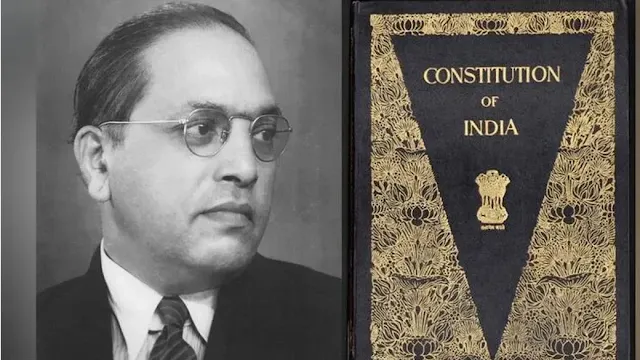Living Document: India's Constitution Continues to Shape the Nation's Destiny
Loading smart summary…
by Pravin Zende • Last Updated:
 |
Living Document: India's Constitution Continues to Shape the Nation's Destiny |
Historical Context
The Constitution of India was not born in isolation; it emerged from the crucible of India's long struggle for independence from British colonial rule. Leaders like Mahatma Gandhi, Jawaharlal Nehru, B.R. Ambedkar, and Sardar Patel played pivotal roles in shaping the ideas that would later find expression in the Constitution. The Constituent Assembly, comprising representatives from various regions, castes, and communities, worked tirelessly for nearly three years to draft a constitution that would encapsulate the aspirations of a diverse nation.
Preamble: The Soul of the Constitution
The Preamble serves as the compass that guides the Constitution's journey. "We, the people of India," it begins, emphasizing the collective will and sovereignty of the people. The Preamble enshrines the ideals of justice, liberty, equality, and fraternity, and also underscores the principles of secularism and socialism added during the 42nd Amendment. It encapsulates the spirit of the nation and sets the stage for the rights and responsibilities that follow.
Fundamental Rights: Guardians of Liberty
The Constitution of India guarantees its citizens a set of fundamental rights that are essential for the development of individual potential and the preservation of human dignity. These rights, ranging from the right to equality, freedom of speech and expression, to protection against discrimination, form the bedrock of a democratic society. However, these rights are not absolute; they come with certain reasonable restrictions to ensure public order, morality, and the sovereignty of the nation.
Directive Principles of State Policy: Building a Just Society
While fundamental rights provide the safeguards for individuals, Directive Principles of State Policy offer guidelines for the government to create a just and equitable society. These principles encompass various aspects of governance, including social justice, economic welfare, and environmental protection. They act as a moral compass, guiding policymakers towards the establishment of an egalitarian society where the gap between the privileged and the marginalized is gradually narrowed.
Parliamentary Democracy: The Power of Representation
The Constitution of India adopts a parliamentary system of government, wherein the real power resides in the hands of the people's representatives. The President, as the head of the state, and the Prime Minister, as the head of the government, along with the Council of Ministers, collectively wield executive power. The bicameral legislature, consisting of the Rajya Sabha (Council of States) and the Lok Sabha (House of the People), ensures that laws are enacted through a deliberative process that represents the diverse voices of the nation.
Judiciary: The Guardian of the Constitution
A hallmark of the Constitution of India is its independent and impartial judiciary. The Supreme Court, as the highest judicial authority, plays a crucial role in interpreting the Constitution and ensuring its enforcement. The power of judicial review empowers the courts to strike down laws that are inconsistent with the Constitution. This mechanism serves as a check on the legislative and executive branches, upholding the rule of law and protecting citizens' rights.
Amendment Process: Adapting to Changing Times
Recognizing the need for flexibility, the Constitution provides for its own amendment to reflect the evolving aspirations of the nation. However, this process strikes a delicate balance between ensuring stability and preventing arbitrary changes. While certain amendments require a simple majority, others necessitate a special majority and ratification by a majority of state legislatures. This intricate system prevents hasty alterations to the Constitution while allowing for necessary reforms.
Challenges and Evolution
Throughout its journey, the Constitution of India has faced challenges that reflect the complexities of a diverse and rapidly changing society. Communal tensions, linguistic disputes, and socio-economic inequalities have tested the resilience of this document. Yet, the Constitution has demonstrated its adaptability by incorporating amendments and legal interpretations that address emerging issues while staying true to its core values.
Conclusion
The Constitution of India stands as a beacon of hope and a testament to the power of collective will and compromise. It embodies the ideals of justice, liberty, equality, and fraternity that form the bedrock of a democratic society. As the nation continues to evolve, the Constitution remains a guiding light, offering a roadmap to navigate the challenges of the present and future. It serves as a reminder that, despite the diversities that may divide us, the principles enshrined in this remarkable document unite us in our pursuit of a just, equitable, and harmonious society.
Frequently Asked Questions
What is this article about?
This article explains Living Document: India's Constitution Continues to Shape the Nation's Destiny in a simple and practical way.
Is this information updated?
Yes. This content is reviewed and updated regularly for accuracy.